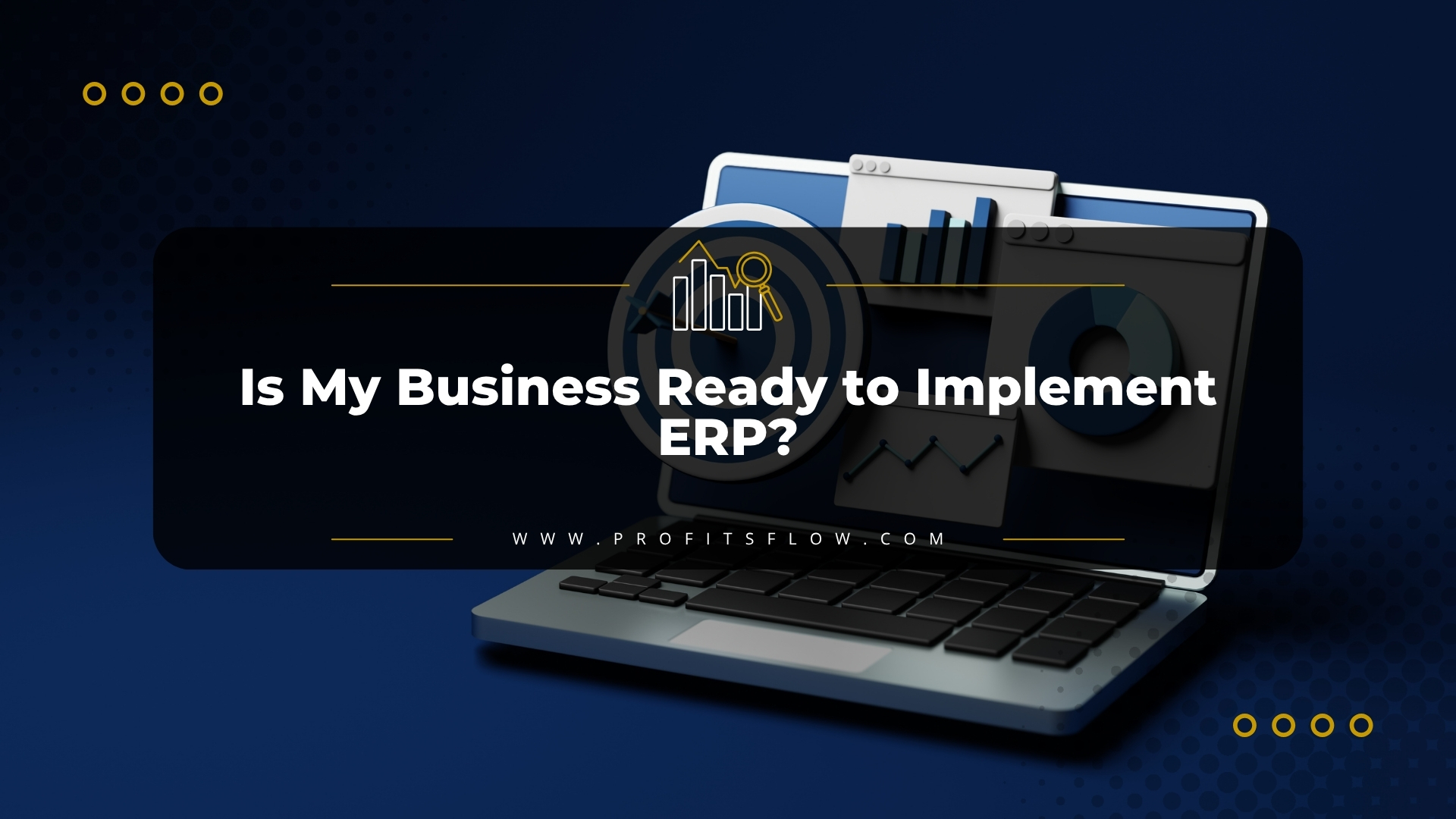Enterprise Resource Planning (ERP) software is often looked at by businesses that are experiencing growth and expanding their workforce. One of the most common questions we get here at Profitsflow is “Is my business ready to implement ERP? and the truth is, timing matters. Implementing ERP too early can drain resources, while waiting too long can leave your teams overwhelmed by inefficiency. Our goal here is to help you answer this question.
How do you know your business is ready to implement ERP?
1. Your processes are fragmented and hard to track
If you’re managing finance in one system, inventory in another, and projects on spreadsheets, you’re spending more time reconciling data than making decisions. ERP readiness often begins when manual processes start holding your business back. If you think you could benefit from having one system to manage most daily operations, it may be time to start looking at ERP.
2. You are experiencing data inaccuracies and delays
If your business is growing and you have multiple systems currently operating you may be struggling to report on certain metrics e.g purchasing, stock control and production. This can cause delays and errors that impact customer service and cash flow. ERP brings data into a single source of truth so you can act quickly and confidently.
3. Scaling is becoming chaotic
You’re winning more business, but fulfilling it is getting harder. You’re unsure when to hire, whether you can meet demand, or how to manage your cash flow to support growth. ERP can align your operations and financials, so growth becomes structured instead of stressful.
4. Your team is spending too much time on repetitive tasks
If your employees are buried in manual reconciliations, double data entry, and fixing mistakes, they’re not focusing on serving customers or improving operations. ERP can automate this routine, freeing up your team to add value where it matters most. Also, in many cases an ERP system will allow you to run efficiency reports so you can see exactly what areas of the business needs to be improved.
5. Leadership needs better visibility to make decisions
As your business grows, so does the complexity of decision-making. ERP allows you to incorporate real-time dashboards, clear forecasting, and financial control to guide strategic decisions that can drastically improve business functionality.
How to Assess ERP Readiness
Before jumping in, ask:
- Have you mapped your current processes clearly?
- Is your leadership team aligned on why you need ERP?
- Do you have the resources (time, budget, people) to support implementation and training?
- Are you willing to adapt your processes to industry best practices rather than customizing everything?
If your business is experiencing these challenges, it’s time to seriously explore ERP. It doesn’t have to be overwhelming if approached strategically.
Next Steps
We have developed a quick and easy way for you to discover If your company is ready for ERP. We have created an ERP readiness form. This form gives a personalised ERP readiness score, insights into areas where you’re strong — and where to improve, and also guidance on your next steps toward a successful ERP implementation
Better yet, the form can be completed in just 3-5 minutes. This will give you a good indication on if you are ready to implement ERP.
You can complete this ERP Readiness form here: ERP Readiness Form
